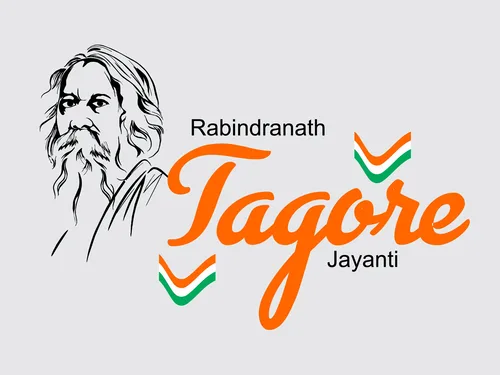
Rabindra Jayanti: Celebrating the Legacy of Rabindranath Tagore
By Meenakshi G on March 6, 2025
Rabindra Jayanti is an annual celebration commemorating the birth anniversary of Rabindranath Tagore, one of India’s greatest literary and cultural figures. Observed with immense enthusiasm in West Bengal, Bangladesh, and Bengali-speaking communities worldwide, this day is marked by cultural programs, poetry recitations, and musical performances that pay tribute to Tagore’s enduring legacy.
The Significance of Rabindra Jayanti
Rabindranath Tagore was born on May 7, 1861, in Kolkata, India. He was a poet, philosopher, artist, and social reformer whose works continue to inspire generations. In 1913, he became the first non-European to win the Nobel Prize in Literature for his collection of poems, Gitanjali. His contributions to literature, art, education, and social reform have left an indelible mark on history.
Tagore’s music, popularly known as Rabindra Sangeet, holds a special place in Bengali culture. His compositions, which explore themes of love, nature, devotion, and nationalism, are an integral part of Rabindra Jayanti celebrations. The event serves as a reminder of his immense influence on art, music, and philosophy.
How Rabindra Jayanti is Celebrated
Rabindra Jayanti is observed in various ways, with institutions like Visva-Bharati University in Santiniketan playing a crucial role in the festivities. The celebrations include:
- Poetry Recitations and Readings: Schools, colleges, and cultural organizations organize events where students and enthusiasts recite Tagore’s poetry and passages from his novels and essays. His works such as Gitanjali, Gora, and The Home and the World are often highlighted.
- Musical and Dance Performances: Musical tributes form the heart of Rabindra Jayanti celebrations. Trained singers and performers present Rabindra Sangeet, and dance-dramas like Chitrangada, Shyama, and Chandalika are performed to showcase Tagore’s artistic vision.
- Art Exhibitions and Literary Discussions: Exhibitions featuring Tagore’s paintings, calligraphy, and literary works are organized to showcase his artistic genius. Seminars and panel discussions are held to explore his contributions to literature, philosophy, and education.
- Community Gatherings and Social Initiatives: Many communities celebrate by organizing public events where people come together to honor Tagore’s vision of a harmonious society. Some groups also conduct social initiatives, reflecting his ideas of humanitarianism and equality.
Tagore’s Enduring Legacy
Tagore’s thoughts on nationalism, universalism, and education continue to be relevant today. His idea of holistic learning led to the establishment of Visva-Bharati University in Santiniketan, where students learn in an environment that integrates nature, creativity, and knowledge. His emphasis on self-reliance, freedom of thought, and cultural harmony remains an inspiration for scholars, educators, and artists worldwide.
His literary masterpieces and songs transcend time and boundaries. His compositions, including Jana Gana Mana, which became India’s national anthem, and Amar Shonar Bangla, the national anthem of Bangladesh, symbolize his deep-rooted love for humanity and cultural unity.
Why Rabindra Jayanti Matters Today
In a rapidly changing world, Tagore’s vision of love, peace, and unity is more relevant than ever. His literature encourages self-reflection, his music stirs emotions, and his philosophy teaches tolerance and harmony. Rabindra Jayanti is not just a day of cultural festivity but also an opportunity to revisit his ideas and integrate his teachings into modern society.
His works inspire artists, musicians, and thinkers to explore creativity beyond boundaries. The principles he advocated—such as universal brotherhood, love for nature, and the importance of education—continue to shape our understanding of a progressive and inclusive world.
Conclusion
Rabindra Jayanti is more than a celebration of a literary genius; it is a tribute to a visionary who redefined art, music, and education. His words and melodies continue to resonate with people of all ages, reminding us of the power of creativity and human connection. As we honor his legacy, we also find inspiration in his timeless wisdom.